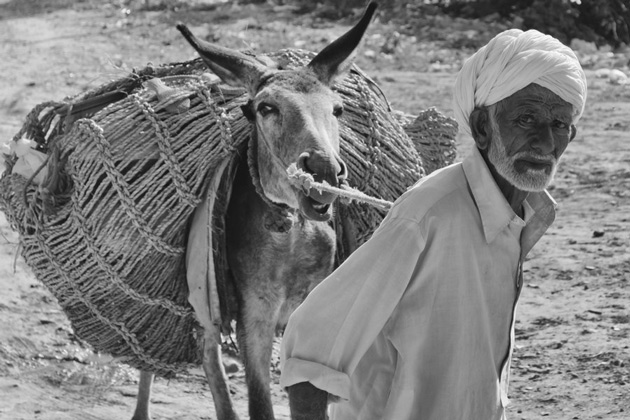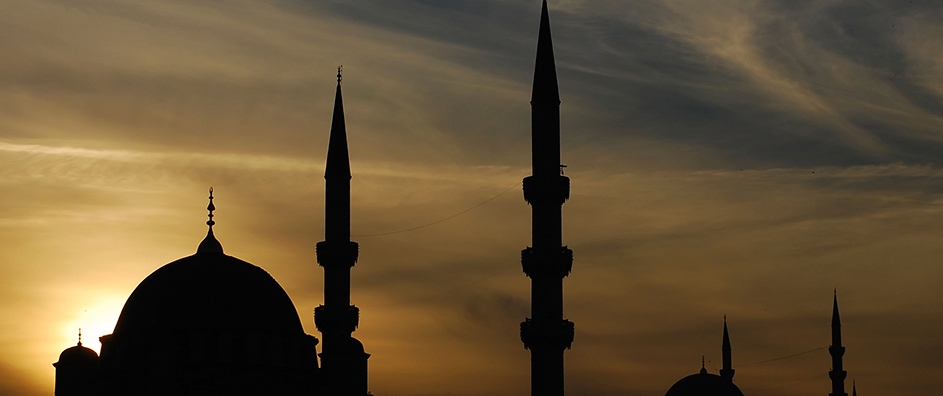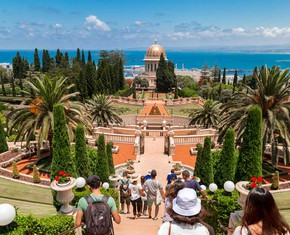The views expressed in our content reflect individual perspectives and do not represent the authoritative views of the Baha'i Faith.
Know, verily, that the soul is a sign of God, a heavenly gem whose reality the most learned of men hath failed to grasp, and whose mystery no mind, however acute, can ever hope to unravel. – Baha’u’llah, Baha’i World Faith, p. 121.
Many years ago in a remote town in Persia, at a time long before modern comforts, there lived a Mullah. Born in that town, he had entered the ecclesiastical path like his father before him. Privately, he had little interest in religion and dogma. However, he had bowed his will to the wishes of his father, and had tried to apply himself to the profession. Due to his lack of true interest, this Mullah could recite the teachings and dogmas of Islam, but he struggled to truly understand their wisdom and mysteries. He had managed to commit the whole of the holy book of Qur’an to memory, and habitually recited verses from it here and there whenever he had the opportunity, whether in a formal sermon or in day to day activities.
Most people in the town had no education. These simple people engaged in various artistic crafts and manual labor. They had great respect for the Mullah, sometimes mixed with feelings of fear, because he could quote the Qur’an so well. Although they did not really understand much of what he said, as a sign of respect, many of the men attended his sermons, packing the mosque full to its seams. The women in the town also showed their respect to the Mullah by cooking him delicious Persian meals or sweets.
Due to all the attention and respect he received, and the power he wielded in the community, our Mullah felt rather proud and gratified with himself. In addition, he lived in a large, lavish house, and at any time of day one could witness various servants running about attending to his needs. In short, the Mullah had a wealthy, wonderful life.
One day an urgent message from the higher ecclesiastical order disturbed the Mullah’s rest. It requested him to make a journey to another part of Persia without wasting a minute. Immediately flustered and not used to demands being made of him, our Mullah had developed an unhealthy physique from the variety and volume of foods he enjoyed consuming. But he quickly ordered his servants to saddle his horse in preparation for the week-long journey.
 The servants dutifully reported that the Mullah’s beloved white horse had, for some mysterious reason, become lame overnight and could not move an inch. With heightened frustration the Mullah sent his servants in search of other horses or donkeys to rent for the trip. His servants searched high and low, and finally discovered one, and only one donkey available. It belonged to a Baha’i in town named Murad–an honest, hard-working and simple man with no wealth, education or great ancestral achievements or prestigious titles.
The servants dutifully reported that the Mullah’s beloved white horse had, for some mysterious reason, become lame overnight and could not move an inch. With heightened frustration the Mullah sent his servants in search of other horses or donkeys to rent for the trip. His servants searched high and low, and finally discovered one, and only one donkey available. It belonged to a Baha’i in town named Murad–an honest, hard-working and simple man with no wealth, education or great ancestral achievements or prestigious titles.
Now, this Mullah had vowed to himself never to do business or associate with the Baha’is in his town. Although they seemed like pleasant and law-abiding individuals, he did not want in any way to sully his mind with interactions with those he considered heathens. All these years he had managed to keep well out of their way, but now–what was he to do? Could he risk the ferocious anger of his superior if he did not make this important journey? After some mutterings under his breath, he decided to employ the services of Murad and his donkey on three conditions.
He summoned Murad and explained to him that on this journey he expected Murad not to talk to him unless granted permission to do so. The Mullah would expect Murad to walk one hundred meters behind the Mullah and the donkey, and attend to all of the Mullah’s needs and comforts during the journey. Murad agreed to these conditions in exchange for a small pouch of money. And so, within an hour, the Mullah, Murad and the donkey set out on their journey.
The path proved long and slow, through rocky and difficult terrain. The Mullah continuously complained about the hard journey. However, he noticed day by day that not only did Murad abide by their agreement, he seemed to be at peace, a contented smile on his face most of the time.
This piqued the Mullah’s interest and he began to take more notice of Murad’s behavior. Nothing seemed to agitate Murad. He seemed to float on a cloud of happiness, without a care in the world. He proved helpful, polite, patient, and unassuming no matter the conditions.
On the fifth day of their journey, the Mullah could no longer contain his curiosity. He watched Murad eat his dry and simple lunch under a tree as if enjoying the most succulent and delicious dishes ever prepared. The Mullah called Murad to him and told him to sit. He studied Murad, as one may perhaps look at a pathetic insect. He then said:
“Murad, I don’t know this Baha’u’llah that you Baha’is believe in. He claims to be a Messenger of God, equal to Jesus or Muhammad. He claims to bring a Holy Book from God and to bring teachings that will create peace and unity for all of humanity. These are indeed big claims to make. If Baha’u’llah is truly who he says he is–then why is it that you know him and I don’t?”
Murad answered:
“Your Eminence, you are well educated, and you can recite the holy Qur’an from memory. You are an authority, and people turn to you for guidance and advice. You have the respect of the townspeople, and have considerable power over them. You have wealth, and can live a life befitting your position. In short, you are like a precious gem. What do people do with a precious gem? They wrap it in a beautiful cloth. Then they put that cloth in a secure box. To ensure its safety, they hide the box in a cupboard and lock it.
“Unlike you,” Murad went on, “I am a common man, like a grain of sand on the beach. I have no education, wealth, power nor position. However, when the sun rises at dawn, where do you think it will shine—on the sand or the gem?”
















Comments
Sign in or create an account
Continue with Googleor